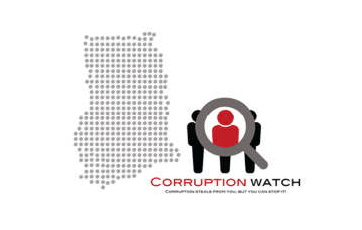A call to unite as the world marks International Anti-Corruption Day
As we know, Ghana is faced with economic difficulty that can partly be attributed to the wastage of the nation’s resources through profligate expenditures. Therefore, it is apt that this year’s international anti-corruption day is being observed under the theme, “UNCAC at 20: Uniting the World Against Corruption.”
- Advertisement -
In commemoration of this year’s International Anti–Corruption Day, Corruption Watch wishes to call attention to the need for unity of purpose on the political leadership front to optimize efforts at fighting corruption.
Indeed, the need for unity of purpose to confront the canker of corruption head-on at this time of our nation’s life cannot be overemphasized.
As we know, Ghana is faced with economic difficulty that can partly be attributed to the wastage of the nation’s resources through profligate expenditures. Therefore, it is apt that this year’s international anti-corruption day is being observed under the theme, “UNCAC at 20: Uniting the World Against Corruption.”
It must be noted that Ghana is a party to the United Nations Convention Against Corruption (UNCAC). Ghana signed the United Nations Convention against Corruption (UNCAC) on 9th December 2004 and ratified it on 16th December 2005. Ghana submitted its instrument of ratification to the Secretary-General of the United Nations on 24th June 2007.
In 2021, the Ghana Anti-Corruption Coalition (GACC) assessed that the ‘Status of implementation and enforcement in practice’ of UNCAC provisions in Chapter II (Prevention) & Chapter V (Asset Recovery) ranged from “poor” to “moderate”.
In this regard, Corruption Watch opines that state actors, especially government must lead all stakeholders to rally efforts towards demonstrating a better commitment to implementing and enforcing the provisions of the UNCAC to effectively combat corruption.
We make the following specific demands:
Political leadership
i. Political leaders on all sides of the political divide must unite and make a conscious effort to frontally deal with corruption.
ii. We urge parliament to conclude and release its report on the bipartisan investigation conducted into the procurement of covid-19 vaccines by the Ministry of Health.
iii. Political leaders must come together to deal with the issue of campaign finance and work at reducing the influence of money in our politics to arrest the deepening phenomenon of State capture by elite individuals including powerful politicians.
Institutional leadership
i. Institutional leadership is another key factor that must be strengthened in the fight against corruption.
ii. We cannot speak on this matter without commending the good works of the Special Prosecutor for taking up and showing interest in national issues such as the Labianca Case, the acquisition of national assets as captured in the will of the late Kwadwo Owusu Afriyie, the bribery and corruption scandal which captured former minister of state at the Ministry of Finance, among others.
iii. We take this opportunity to call on other state institutions such as CHRAJ, EOCO, Auditor General, Internal Audit Agency, Public Accounts Committee, etc. to follow suit by working together to decisively make corruption an expensive venture.
iv. We also wish to draw the attention of the judiciary to delays in prosecution and urge the courts to deal expeditiously with corruption cases to preserve the value of money and resources stolen from the state as asset recovery is not being done at an optimum level in this country.
Non-State actors
i. Corruption Watch calls on civil society organizations, traditional authorities, religious leaders, and private sector leaders to prioritize unity to promote democracy.
ii. We call on chiefs and religious leaders to discontinue and discourage the practice where they bring their influence to bear on state actors handling matters related to corruption.
iii. We reiterate that citizens must avoid seeing corruption as normal. When you see something, say something. Every Ghanaian should make it a personal mission to get involved in the fight against it in all its forms, including bribery.
Right to Information
We recognize the importance of the Right to Information Act and recommend that exemptions should be made for fee-free access to information by the media and non-profit organizations that access information for non- profit purposes. This will encourage better participation by citizens and non-state actors in the efforts at fighting corruption.
- Advertisement -


